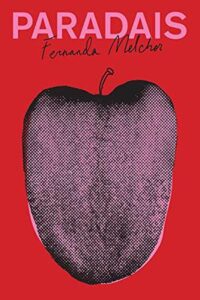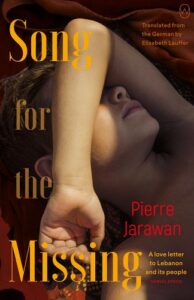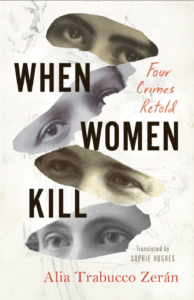April’s international titles are all distinguished by stunning writing and a noir sensibility, and include, unusually, two nonfiction titles. This month, take a journey from Mexico to Ukraine, France to Lebanon, Chile to an unnamed East Asian country, for a perfect reminder that the particulars of setting may be quite specific, but obsession, greed, envy, and need are shared the whole world over.


Markiyan Kamish, Stalking the Atomic City: Life Among the Decadent and Depraved of Chornobyl
Translated by Hannah Leliv and Reilly Costigan-Humes
(Astra House)
Like doing an image search for Krokodil, once you open this book you can never unsee its contents. Unlike that image search, the rot and ruin of Stalking the Atomic City is rendered in gorgeous prose that highlights the sublime beauty of its toxic setting. If you’ve seen Tarkovsky’s Stalker (or even, just like, heard about it) you need to read this book.

Marion Brunet, Vanda
Translated by Katherine Grigor
(Bitter Lemon)
Marion Brunet’s pitch-black Vanda is seaside noir at its best. Vanda, a single mother in a coastal French town, splits her time between working, parenting, and drinking, until the arrival of an ex disrupts her routine and begins to bring back memories Vanda would rather leave buried.

Pierre Jarawan, Song for the Missing
Translated by Elisabeth Lauffer
(World Editions)
In a 2006 Lebanon haunted by the ghosts of the civil war and threatened by present-day bombs, a young man wanders a fractured landscape and wonders what happened to his childhood friend, Jafar, with whom he upsold trinkets embellished by tall tailed origin stories. Mysterious and moving, A Song for the Missing is a quietly brutal noir that dishes out equal parts empathy and scorn for humanity and its many destructions.

Alia Trabucco Zéran, When Women Kill: Four Crimes Retold
Translated by Sophie Hughes
(Coffee House Press)
This one is not exactly fiction and not exactly nonfiction, but rather a hybrid of both. While Latin American writers are rightfully concerned about violence against women, Alia Trabucco Zéran wanted to know something different: the stories of women who commit violence. Not to ask “why women kill,” for the very question reeks of misogyny (we are perfectly capable of killing, thank you very much), but to ask what society gets out of its mass hysteria whenever an ordinary woman performs an act of violence, and to try to find the real person beneath the mask of “monster.” When Women Kill begins with an introduction/manifesto to this effect, then goes on to fictionally explore the interior lives of four infamous Chilean murderers.

Masatsugu Ono, At the Edge of the Woods
Translated by Juliet Winters Carpenter
(Two Lines Press)
In an unnamed country, a family finds their new home at the titular edge of the woods to be less than calming as strange noises and even stranger visitors disturb the idyllic property. Perfect for those who like their psychological thrillers with a good dose of horror.

















